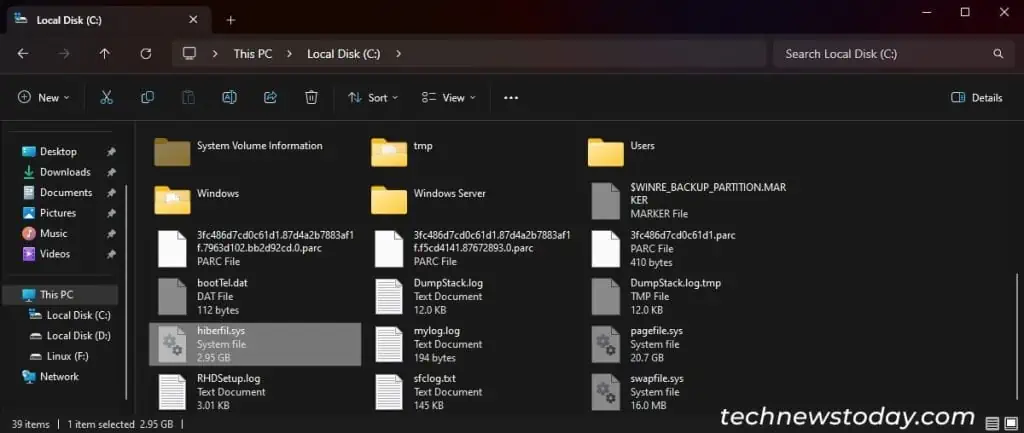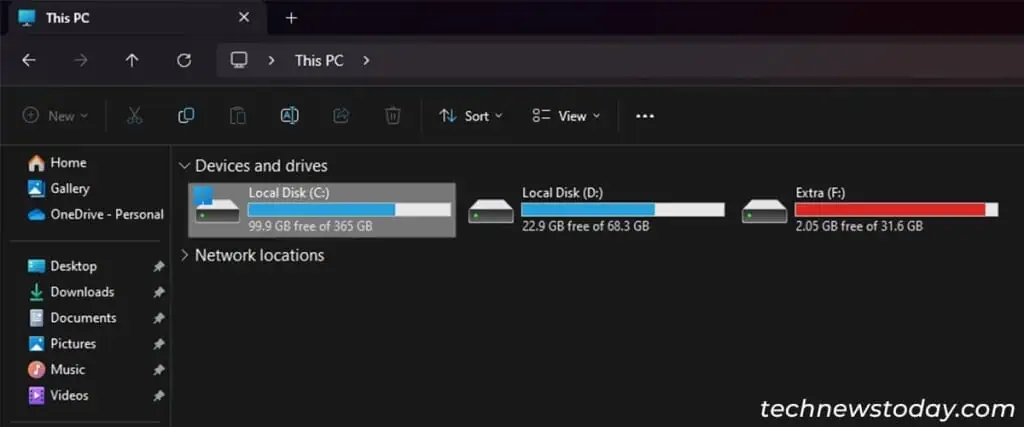According to Microsoft, you need aminimum of 64 GBonthe C drivefor a64-bitWindows system and32 GB for a 32-bit one.
However, this small partition will only accommodate the barebone operating system and preinstalled apps.
For most users, it’s best to allocateat least 100-150 GBfor your system drive. You should also have about30-40 GB freeat all times for updates and future downloads.

But you may need a smaller or a larger C drive depending on your usage. Here are the recommended sizes for the different types of files that are usually present in the C drive:
It’s always best to keep the personal files organized somewhere else. So thetotal size of the apps you needactually determines how much C drive space you should have.
Case 1: For Normal Usage
Most people simply installsome utility appson their computer, with the total size leading up to 30-35 GBs. In such cases, a 100-150 GB size for the C drive should be enough.

It will also provideadditional space for user fileslike Videos, Pictures, and Music. But it’s always recommended touse other drivesfor such media and other data files.
I would also advisedisabling hibernationtofree up a few GBs of spaceoccupied by thehiberfil.sysfile.
If you are using asingle SSD with 128 GBcapacity, do notpartition it into other drives.
It’s best toadd an HDD/SSDif you wish toextend storage spacefor your games, media files, or any other data.
Case 2: For Minimal Usage
If the majority of your PC usage involvesbrowsing social sites, online shopping, and checking emails, and you also do not need a lot of apps, a simple 70-80 GB space should be enough for your use.
It will leave enough space for your OS files, temporary files, and future updates and manual downloads.
All the personal files can go to the other drives, and you won’t have to worry about your C drive much.